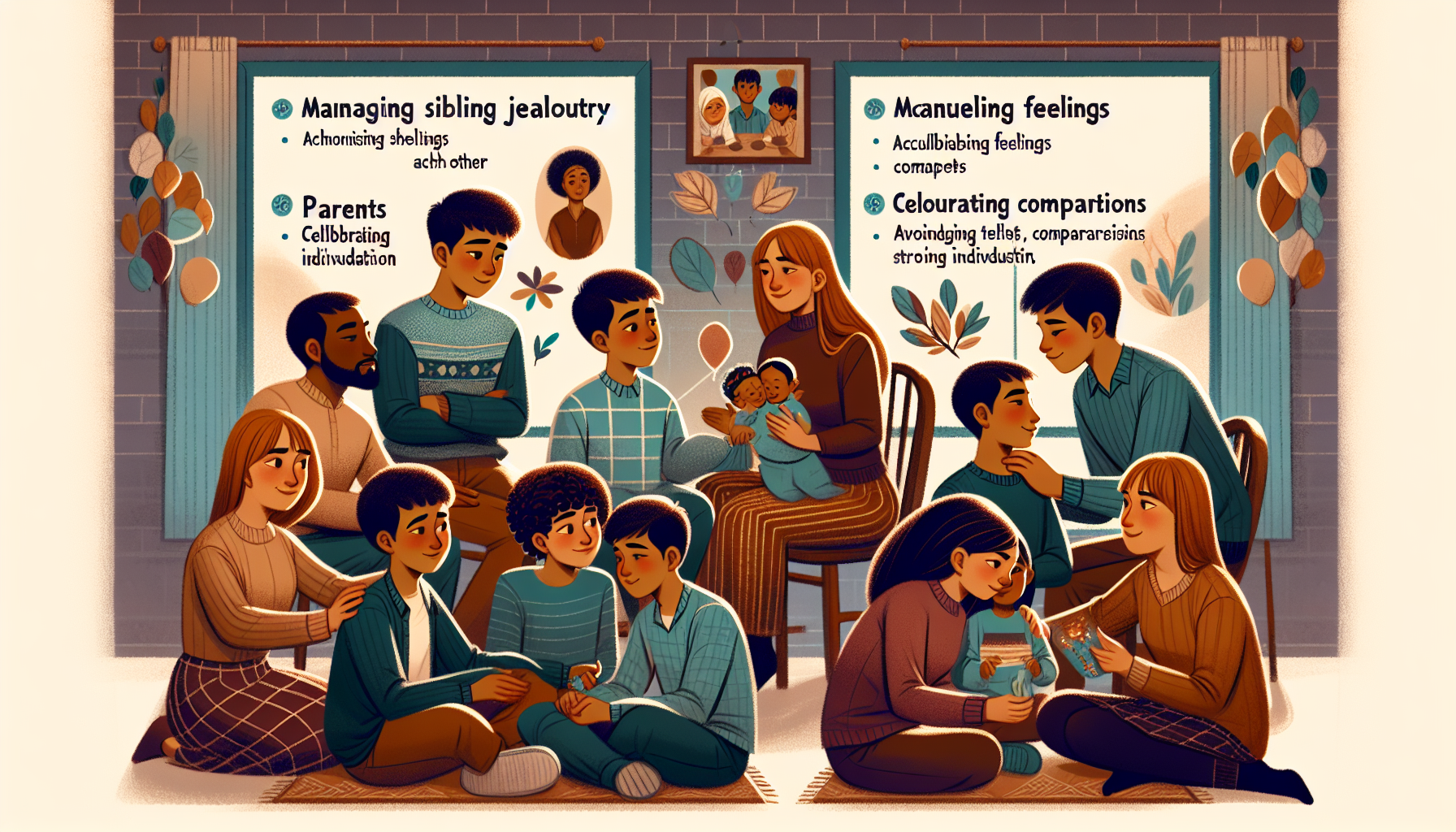“`html
Managing Sibling Jealousy: Parenting Tips for Stronger Relationships
Introduction
Sibling relationships are among the most influential connections in a child’s life. While a strong bond between siblings can provide lifelong support and companionship, sibling jealousy can create tension and conflict within the family. As parents, understanding how to effectively manage sibling jealousy is crucial for fostering a harmonious home environment and nurturing healthy relationships.
Jealousy between siblings is common, and it often stems from feelings of competition, perceived favoritism, and unmet emotional needs. This article will provide practical parenting advice to help you navigate sibling dynamics and promote positive connections between your children.
Main Points
Why Does Sibling Jealousy Happen?
Sibling jealousy typically arises when a child feels that their emotional or physical needs are not being met equally. This can be triggered by a variety of factors, including:
- Birth of a new sibling: A new baby often draws significant attention from parents, leaving older children feeling sidelined.
- Perceived favoritism: When one child believes another is receiving more love, attention, or privileges, it can lead to resentment.
- Developmental stages: Younger children may struggle with sharing, while older children may feel burdened by increased responsibilities or comparisons.
Understanding these triggers allows parents to address the root causes of jealousy and provide support tailored to each child’s needs.
The Impact of Sibling Jealousy on Family Dynamics
Unchecked sibling jealousy can lead to long-term consequences for both the children involved and the family as a whole. It can manifest as frequent arguments, physical fights, or withdrawal from family activities. Over time, unresolved jealousy may damage self-esteem and strain sibling relationships into adulthood.
Addressing sibling jealousy early not only strengthens sibling bonds but also creates a more peaceful and supportive family environment. By fostering empathy and communication, parents can help their children develop skills that will benefit them throughout their lives.
Psychological Principles at Play
From a psychological perspective, sibling jealousy can be understood through principles like the need for safety, autonomy, and self-expression. For example:
- Children need to feel secure in their parents’ love and attention. When this sense of safety is disrupted, jealousy can emerge.
- Encouraging autonomy by respecting each child’s individuality helps reduce feelings of competition.
- Providing opportunities for self-expression allows children to voice their emotions and feel heard, reducing resentment.
Applying these principles can help parents better understand their children’s emotional needs and address jealousy more effectively.
Practical Recommendations
1. Acknowledge Feelings
When a child expresses jealousy, avoid dismissing or minimizing their emotions. Instead, validate their feelings by saying something like, “I understand that it’s hard to share attention with your sibling.” This demonstrates empathy and helps your child feel heard.
2. Encourage Teamwork
Promote cooperation by involving siblings in shared activities or responsibilities. For example, encourage them to work together to complete a puzzle, bake cookies, or care for a pet. These experiences can strengthen their bond and reduce rivalry.
3. Avoid Comparisons
Comparing children—whether intentionally or unintentionally—can exacerbate jealousy. Instead of saying, “Why can’t you be more like your brother?” focus on each child’s unique strengths and accomplishments.
4. Spend One-on-One Time
Dedicate individual time to each child to make them feel valued and special. Even 10-15 minutes of undivided attention can go a long way in building their sense of security and reducing jealousy.
5. Teach Conflict Resolution
Help your children develop healthy ways to resolve disagreements. Teach them to use “I” statements (e.g., “I feel upset when you take my toy without asking”) and encourage them to listen to each other’s perspectives.
6. Set Clear Boundaries
Establish family rules that promote respect and discourage hurtful behaviors. For instance, make it clear that name-calling or physical aggression is unacceptable, and enforce consequences consistently.
7. Celebrate Individuality
Encourage each child to pursue their own interests and hobbies. Celebrating their unique talents and achievements reinforces their sense of self-worth and reduces the need to compete for attention.
8. Model Positive Behavior
Children learn by observing their parents. Model healthy conflict resolution, empathy, and respect in your own relationships to set a positive example for your kids.
Conclusion
Managing sibling jealousy is a challenging but essential part of parenting. By understanding the underlying causes of jealousy and addressing your children’s emotional needs, you can foster stronger sibling relationships and create a more harmonious family environment.
Remember, the goal isn’t to eliminate all conflict but to help your children develop the skills to navigate their differences with empathy and respect. By implementing the strategies outlined in this article, you can empower your children to build lasting connections and grow into emotionally resilient individuals.
For more parenting advice and resources, explore other articles on our website. Together, we can support your family’s journey toward stronger relationships and greater understanding.
“`

